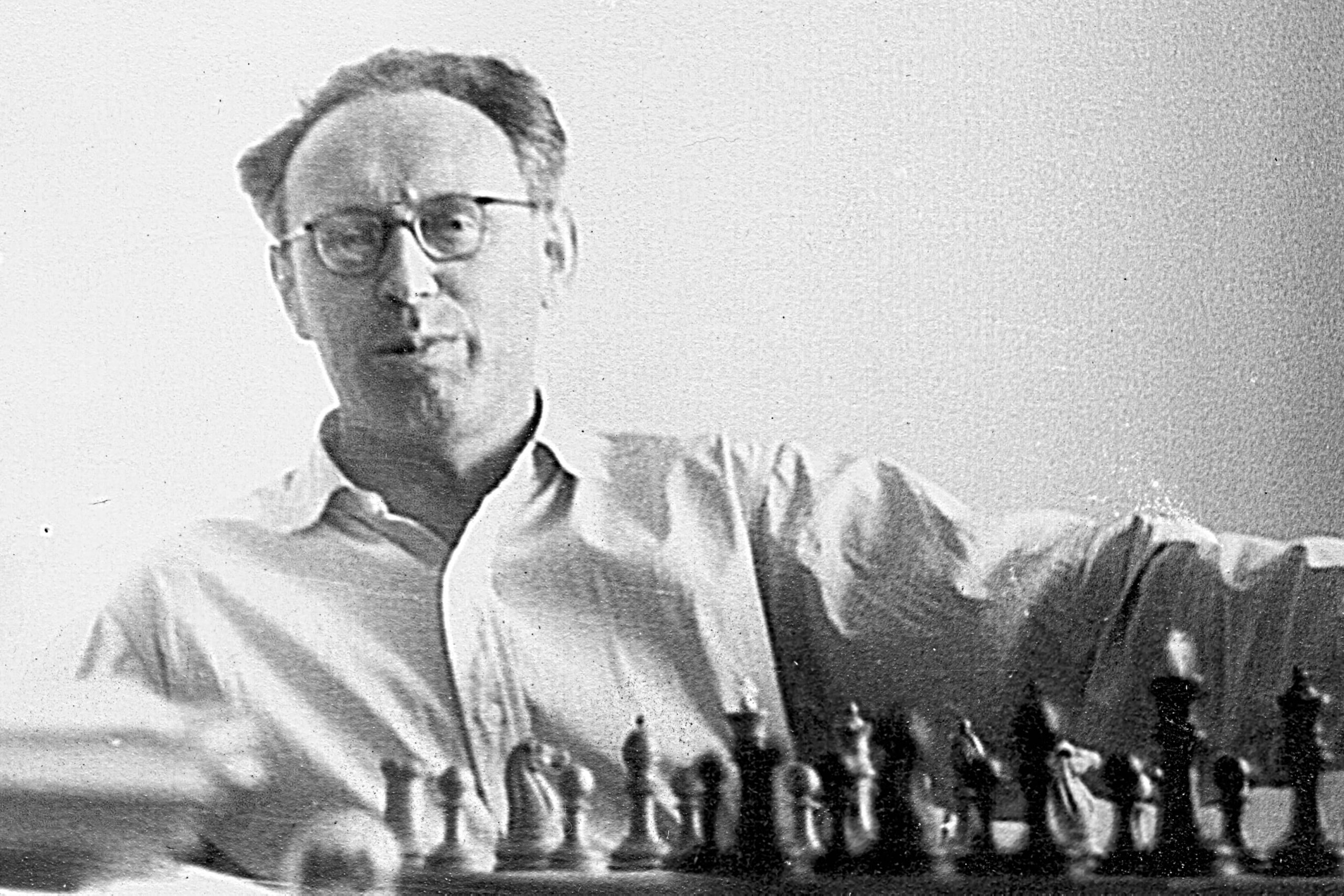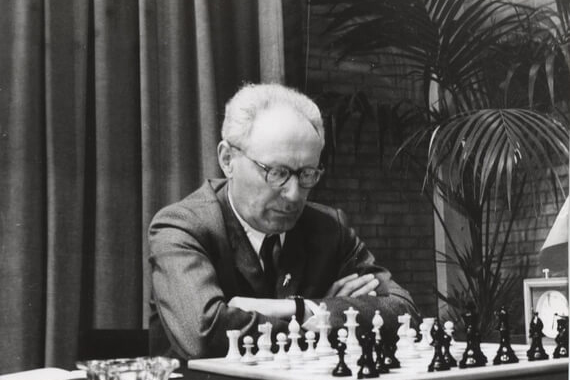No products in the cart.
Chess Players
Strategic Genius of Mikhail Botvinnik | World Champion’s 5+ Tactics Decoded!
Mikhail Botvinnik, a legendary figure in the world of chess, was not only a World Champion but also a strategic chess pioneer. His innovative and calculative approach to the game earned him a reputation as one of the most disciplined and brilliant chess players in history. In this article, we will delve into Botvinnik’s strategic genius, his career path, and achievements, exploring his pioneering techniques and tactics that revolutionized the game of chess.
Table of Contents
Introduction to Mikhail Botvinnik
Mikhail Botvinnik was a renowned chess player who made significant contributions to the world of chess as a World Champion and a strategic chess pioneer. Born on August 17, 1911, in Russia, Botvinnik’s talent and passion for chess were evident from a young age. He became the Soviet Chess Champion at the age of 20 in 1931, and his meteoric rise in the chess world continued as he went on to become the World Chess Champion in 1948.
He was known for his disciplined and innovative approach to the game, constantly pushing the boundaries of chess theory and strategy. His meticulous preparation and analytical skills helped him dominate the chess world during his peak years. He had a deep understanding of positional play, endgame technique, and his ability to create imbalances on the board to his advantage. Botvinnik’s games were characterized by his calculated and precise moves, often resulting in strategic wins against formidable opponents.
Botvinnik’s Innovative Chess Strategies: Key Tactics Revealed
Mikhail Botvinnik, known for his disciplined and innovative approach to chess, was a strategic chess pioneer who left an indelible mark on the game. His unique strategies and tactics have been studied and emulated by chess players around the world.
Meticulous Preparation
One of Botvinnik’s key strategies was meticulous preparation before a game. He would thoroughly analyze his opponent’s games, study their playing style, and identify their weaknesses. He would then craft a tailor-made strategy to exploit those weaknesses, giving him an edge on the board. Botvinnik’s meticulous preparation and strategic approach to each game exemplified his innovative thinking and analytical skills. He was always one step ahead of his opponents, anticipating their moves and capitalizing on their weaknesses. This personalized approach to each game allowed Botvinnik to consistently outplay his opponents and secure victories.
Positional Play
Mikhail Botvinnik’s deep understanding of positional chess was a key aspect of his strategic prowess. He had an exceptional ability to carefully maneuver his pieces to gain control of key squares and outplay his opponents in the middle game. Botvinnik’s positional play was characterized by his keen awareness of the importance of pawn structure, piece coordination, and the control of central squares. He would often prioritize solid pawn structures, such as the pawn chain, to establish a strong presence in the center of the board. Botvinnik’s strategic placement of pawns and pieces would often result in a gradual squeezing of his opponents. In addition to his precise pawn and piece placement, he would also skillfully maneuver his pieces to force favorable exchanges or create threats that would put pressure on his opponents. Botvinnik’s deep understanding of positional chess and his ability to carefully manipulate the position to his advantage was a key element of his strategic prowess.
Endgame Technique
Botvinnik’s endgame skills were indeed legendary, and they were a crucial aspect of his strategic prowess. He had a deep understanding of endgame principles, which he employed to his advantage in many of his games. One of Botvinnik’s notable endgame skills was his mastery of the king piece. Botvinnik would skillfully maneuver his king to advantageous positions, such as central squares or squares that allowed him to support his pawns, control key areas of the board, or participate in piece coordination. His ability to activate his king and utilize it effectively in the endgame was a significant factor in his success. Botvinnik’s pawn play in the endgame was also exemplary. He understood the value of pawn structure and pawn breaks, and he would use them to create weaknesses in his opponent’s pawns or to gain pawn advantages. He would often create passed pawns or advanced pawns that would pose constant threats to his opponents and force them to make difficult choices. Botvinnik’s strategic pawn play in the endgame allowed him to gradually improve his position, create winning advantages, and convert them into wins.
Imbalance Creation
Botvinnik’s strategic approach to creating imbalances on the chessboard was indeed a hallmark of his playing style. He was not afraid to take risks and provoke pawn weaknesses, double pawns, or isolated pawns in his opponent’s position, knowing that he could capitalize on them with his precise and accurate play. Botvinnik understood that creating imbalances on the board could lead to long-term advantages if he could exploit them effectively. He would deliberately maneuver his pieces to pressure his opponent’s pawn structure and provoke weaknesses. For example, he might induce his opponent to create doubled pawns by capturing a pawn with a specific piece, or he might force isolated pawns by trading off pieces in a certain manner. Once these imbalances were created, Botvinnik would then capitalize on them with his accurate play. Botvinnik’s fearlessness in creating imbalances on the board to his advantage was a testament to his strategic genius.
Precise Calculation
Botvinnik’s exceptional analytical skills were a crucial aspect of his strategic chess prowess. During his games, Botvinnik’s analytical skills came into play as he accurately calculated and assessed complicated variations in his mind. He would consider multiple lines of play, anticipate his opponent’s responses, and evaluate the resulting positions with great precision. This allowed him to make informed decisions and choose the best moves that would give him an advantage on the board. This analytical approach to chess helped him navigate through complex positions, find hidden tactics, and exploit weaknesses in his opponents’ positions, ultimately leading to strategic wins. In addition to his exceptional positional understanding, endgame skills, and ability to create imbalances on the board, Botvinnik’s analytical skills were a key factor in his success as a strategic chess pioneer. His ability to accurately calculate and assess positions, combined with his strategic and tactical acumen, made him a formidable opponent and a true innovator in the world of chess.
Botvinnik’s Impact on Chess History: An Influential Figure
Mikhail Botvinnik’s impact on chess history is immense, and he is widely recognized as a legendary figure in the chess world. As a World Champion and a strategic chess pioneer, Botvinnik’s contributions have left an indelible mark on the game of chess in several key areas.
First and foremost, Botvinnik’s innovative approach to chess strategy and his pioneering ideas have significantly influenced modern chess theory. He constantly pushed the boundaries of chess knowledge and was known for his meticulous preparation and analytical skills. His deep understanding of positional play, endgame technique, and ability to create imbalances on the board revolutionized the way chess was played and analyzed during his time. Many of his strategic concepts, such as pawn weaknesses, piece coordination, and king activity, are still studied and applied by chess players at all levels today.
Botvinnik’s impact on chess history also extends to his role as a mentor and educator. He was a renowned chess coach and writer, and he mentored several future World Champions, including Anatoly Karpov and Garry Kasparov. His teaching methods and emphasis on disciplined preparation and analytical skills have influenced generations of chess players, helping them to improve their understanding of the game and elevate their play to new heights.
Furthermore, Botvinnik’s contributions to chess history can be seen in his role as a World Chess Champion. He won the title of World Chess Champion in 1948 and held it a total of three times during his career. His reign as World Champion was marked by his strategic and innovative play, and he set a high standard for future generations of chess players. His success as a World Champion and his strategic approach to the game has inspired and motivated countless chess players to strive for excellence and achieve success on the board.
Botvinnik’s impact on chess history is also evident in his pioneering efforts in computer chess. He was one of the first chess players to actively collaborate with computer scientists and use computers as tools for chess analysis and preparation. His innovative approach to utilizing technology in chess paved the way for the development of computer chess programs and the integration of technology into the world of chess, which has had a profound impact on the way chess is played and studied today.



